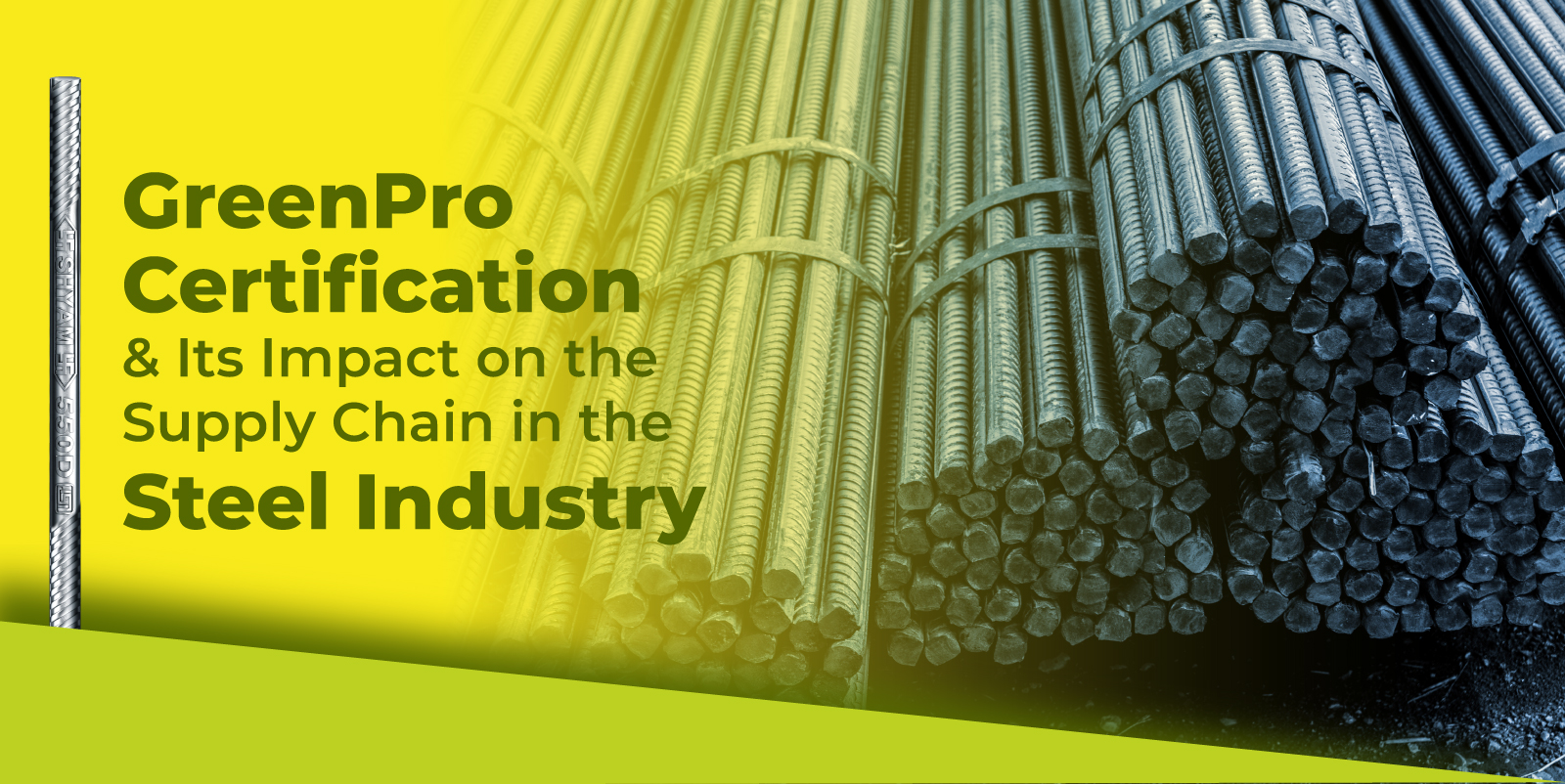GreenPro Certification and Its Impact on the Supply Chain in the Steel Industry
The steel industry has been at the forefront of infrastructure development and industrial growth for decades. GreenPro Certification is a recognized standard in sustainable products. It has emerged as a game-changer for industries such as the steel industry. The certification enhances the green credentials of the steel manufacturers and, at the same time, influences the entire supply chain, which promotes a better sustainable future.
The impact of GreenPro Certification on steel supply chain
● Encouraging Energy Efficiency
Another significant concern in the steel sector is energy use. GreenPro certification supports energy-efficient methods that reduce fossil fuel use and influence the use of renewable energy sources. This involves using cutting-edge technology, drastically lowering carbon emissions using electricity rather than coal.
Because energy-efficient technologies reduce carbon emissions, steel businesses that invest in them are more likely to be certified GreenPro. By modernizing its manufacturing facilities and implementing cutting-edge technologies, Shyam Steel has achieved significant progress in energy efficiency. These efforts have made its operations more competitive, which has also helped lower energy usage and saved money.
● Increasing the Competitiveness of the Market
There is an increasing need for sustainable products worldwide. Steel firms gain a competitive edge from GreenPro accreditation, which attests to their dedication to sustainability. Because GreenPro-certified steel supports its own sustainability objectives, consumers are more inclined to select it, particularly in the infrastructure and construction industries.
The growing demand for GreenPro-certified materials has helped Shyam Steel, which strongly emphasizes creating premium, environmentally friendly steel products. By showing their GreenPro accreditation and drawing in new customers who respect sustainability, Shyam Steel may reach a greater range of audience and build its brand value.
● Promoting Eco-Friendly Purchasing
Steel producers are encouraged to acquire raw materials sustainably via the GreenPro accreditation. This entails minimizing the environmental effect from the start of the supply chain by choosing suppliers who prioritize sustainable mining methods. Stakeholders are reassured that sustainable methods have been adhered to throughout the production process, from the extraction of raw materials to manufacture, when steel products are GreenPro certified.
Sustainable business methods are a hallmark of Shyam Steel’s operations. They support a more sustainable steel supply chain and adhere to GreenPro requirements by acquiring raw materials ethically and guaranteeing little waste during manufacture. Shyam Steel’s dedication to sustainability makes it stand out as a trustworthy and ecologically conscious steel provider.
● Carbon Footprint Reduction
The steel industry is one of the sectors with the highest carbon footprints and a major contributor to greenhouse gas emissions. GreenPro certification emphasizes the significance of lowering carbon footprints using cleaner industrial methods. This entails employing renewable energy sources, implementing energy-efficient technology, and streamlining procedures to reduce emissions.
Steel firms earn GreenPro accreditation to show their commitment to minimizing their environmental impact. This appeals to businesses and consumers who care about the environment and want to improve their brand’s reputation. For instance, Shyam Steel has taken the initiative to implement energy-efficient solutions that meet GreenPro requirements and gradually lower production costs.
● Recycling and Waste Management
Efficient waste management is an imperative component of GreenPro certification. The steel industry produces many waste products, including slag, dust, and scrap. To minimize environmental damage and the demand for new raw materials, GreenPro advises businesses to implement trash recycling and reuse initiatives.
It is standard practice to recycle steel scrap, and GreenPro certification encourages the use of recycled steel in production. This lessens the effect that raw material mining and processing have on the environment. By emphasizing sustainability, Shyam Steel ensures that its manufacturing procedures are set up to recycle as much steel scrap as possible, preserving resources and cutting down on waste.
Understanding GreenPro Certification
GreenPro is a green product certification. The Confederation of Indian Industry (CII)-Indian Green Building Council (IGBC) provides this certification. It assesses the environmental performance of the products throughout numerous categories, which guarantees that they meet the highest standards of sustainability. Through the certification of the products, GreenPro assists industries in demonstrating their commitment to environmental responsibility, which makes it more effortless for businesses to opt for sustainable products.
In the steel industry, the certification verifies the production processes and the steel products to ensure that they adhere to strict environmental guidelines. It includes aspects such as energy efficacy, waste management, use of raw materials, and carbon emission. GreenPro certification thus enables steel manufacturers to prefer sustainable products, which further helps them gain a competitive edge in the market.
GreenPro accreditation revolutionizes the steel supply chain by encouraging sustainable practices in everything from waste management to production and raw material procurement. It fosters the shift to a greener economy and incentivizes steel businesses to implement cleaner, more energy-efficient technology. As the demand for sustainable goods rises, GreenPro certification will significantly shape the future of the steel industry.
Shyam Steel is a prime example of how steel producers may use GreenPro accreditation to create a lucrative and sustainable company. In addition to satisfying the expectations of a greener market, they also help create a more sustainable future by emphasizing eco-friendly activities and investing in green technologies.

